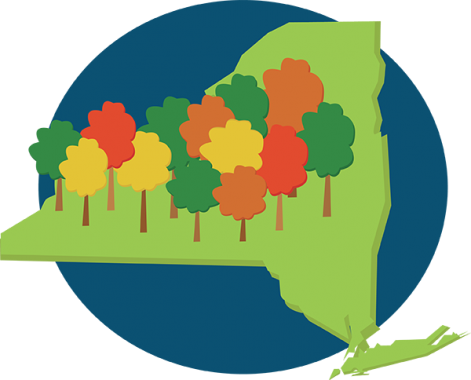Why am I hearing so much about RSV and what can I do to keep my child healthy this winter?
From a surge in RSV cases to COVID and the flu, the news headlines can feel overwhelming for parents. We sat down with Dr. Lorna Fitzpatrick to get answers to some of your most asked questions.
Lorna K. Fitzpatrick, MD
Dr. Lorna K. Fitzpatrick is the Vice President of Medical Affairs at Excellus BlueCross BlueShield. She is Board Certified in Pediatrics and Pediatric Hematology-Oncology, obtained her medical degree at Jacobs School of Medicine in Buffalo, and continued on to Residency in Pediatrics at St. Louis Children’s Hospital/Washington University St. Louis. She completed a Fellowship in Pediatric Hematology-Oncology at Johns Hopkins University.
Q: Dr. Fitzpatrick, we are hearing a lot in the news about respiratory syncytial virus – or RSV – and how cases are soaring. Can you tell us what RSV is and who should be worried about it?
The Centers For Disease Control (CDC) is seeing an increase in RSV cases and hospitalizations across the country. RSV is a respiratory virus that usually causes mild cold-like symptoms in otherwise healthy children and adults. Anyone can get RSV but it’s a more serious problem in babies or older adults when it turns into bronchiolitis – which is inflammation in your lungs – or pneumonia, which is an infection in your lungs. The most at risk are newborns and premature infants. As we approach holiday gatherings, remember that what is a slight cold in a healthy adult can be a serious illness for an infant or toddler. Keep babies close to you and avoid having friends and relatives, as well-meaning as they may be, kiss or hold your babies.
Q: What are the symptoms of RSV and how do you know when your child needs to be seen by a doctor?
Early symptoms of RSV include a runny nose, loss of appetite, a cough which may include wheezing, and sometimes a fever. You’ll want to see a doctor immediately if you see your baby or child struggling to breathe. Sometimes this looks like a child’s nostrils are flaring out, their ribs are pulling in, and/or they are using their belly muscles to breathe. Also, with a baby, call your pediatrician if they aren’t taking in enough fluids or having 6-8 wet diapers a day. If symptoms are getting worse instead of better, you should see your doctor. Your provider cares – call if ever in doubt.
Q: We are also hearing a lot about the flu already this year, and we know COVID is still around. What is the latest on those illnesses?
We are in “flu season” from now until at least February. The flu can be serious especially in older adults, young children, pregnant women, and nursing home residents. The CDC recommends the flu vaccine for everyone 6 months and older. This will help protect you as well as anyone who is particularly vulnerable. And while COVID cases are down, you should stay up to date on vaccines to help prevent a more serious infection if exposed. Talk to your doctor if you have questions about which vaccine is best for you or your child. Getting a flu vaccine or COVID booster is as simple as stopping by your local pharmacy. Visit vaccines.gov to find a vaccination site near you.
Q: How do parents know when to keep kids home from school or an event? What guidelines should they follow?
If your child tests positive for flu, RSV or COVID they should stay home for the period of time recommended by their pediatrician. If your child is sick and tests negative for these illnesses, they should still stay home until they are “fever free” and “symptom free” without the use of medication for 24 hours.
Q: What’s your best advice for everyone on staying healthy this winter?
Stay up to date on your vaccinations. Even if you do get sick, being vaccinated will likely keep your symptoms mild. Make sure you wash your hands often for 20 seconds with soap and warm water – and make sure your children know how to wash their hands properly, too. It’s a good idea to remind kids to wash or sanitize their hands in school during the day. We all should use the hand sanitizing stations at the grocery store – maybe carry a sanitizer in your purse or car, too. And avoid close contact with people who are sick.
- Member video: Going the extra mile for our members - July 14, 2024
- Be safe outdoors – What you need to know about Lyme disease - July 10, 2024
- With the support of my leader, I found time in my busy schedule for development - July 3, 2024


